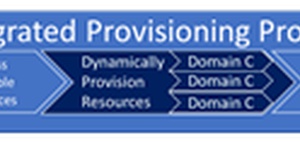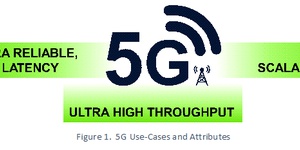
Whitepapers
5G Service Assurance: The Case for AIOps
Communication service providers are rapidly deploying 5G networks. A key objective is to create new services and revenue, which was not possible using 4G and earlier mobile technologies. 5G networks have increased bandwidth and lower latency. As CSPs move to 5G, infrastructure, operations, and services are undergoing a massive paradigm shift.
This transition has created pain points for many CSPs:
- Managing the transition from hardware network elements to virtual network elements
- Administering service delivery, service agility, and service creation
- Achieving operations efficiency through automation
A critical success factor for 5G services is efficient and effective 5G network operations.
Peter Fetterolf's paper discusses the challenges posed to CSPs in migrating to cloud-native 5G infrastructure and the benefits of adopting an AIOps platform for hybrid cloud network management and service assurance.
For more information about ACG's business case services, contact Peter Fetterolf at pfetterolf@acgcc.com.
You might like similar whitepapers


The Economic Benefits of Juniper Apstra and CN2 in a Modern 5G Network

AUTOMATING 5G ACCESS DEPLOYMENTS

The Economic Benefits of the Ciena Virtualized Edge Solution

Key CommSoft Learnings from #MWC19

The Economic Benefits of Virtual Edge Services

Meet Market Needs with Software-Enabled Solutions

ECONOMIC BENEFITS OF THE VMWARE TELCO CLOUD AUTOMATION AND HORIZONTAL INFRASTRUCTURE

Achieving End-to-End Intelligence in the Cable Access Network

Nuage/ALU on the VNS Solution in an SP Context

Understanding VRAN

The Driving Factors behind the Telecommunications Shift to Cloud Metro Networks

INTRODUCING xHAUL REWRITING THE PLAYBOOK FOR TRANSPORT NETWORKING IN THE RAN IN 5G

Comparing Broadband Network Architectures in the Evolving Connectivity Landscape

Tunnel-Based versus Tunnel-Free SD-WAN

Lenovo: Data Center Switch Solutions for Enterprise Data Centers

Segment Routing: An ACG Research Whitepaper

AUTONOMOUS NETWORKS: NOW IS THE TIME

The Economic Benefits of Automating Capacity Optimization in IP Networks

Hybrid Networks: Integrated Provisioning for Virtual and Physical Networks

Maximizing Efficiency Using Standards-Based, Model-Driven Infrastructures in NFV Deployments

5G Service Assurance: The Case for AIOps

THE BUSINESS CASE FOR ADAPTIVE IP

TCO Benefits of Converged 5G Ready IP Transport

AUTONOMOUS NETWORKS POWER INDUSTRY 4.0

Simplifying IP Networks

Itential Vendor Profile: Automation and Orchestration for Multi-Domain Networks

Delivering Policy Continuity at Scale in Cloud IT and Managed Network Services

The TCO Benefits of Dell’s Next-Generation Telco Servers

MODERNIZING THE CABLE SERVICE DELIVERY INFRASTRUCTURE

5G Service Assurance: The Case for AIOps

Propelling Operators to L3 Operations Autonomy and Beyond with Huawei ADN

Coriant’s Multi-Sided Platform Partner Program: Market Impact Report

Huawei ADN Solution Approach to Implementing Autonomous Networks

Building the Business Case for AI in Wireless Networks: Juniper Mist AI TCO Report

Building Open, Scalable Service Delivery Infrastructures

Huawei Autonomous Driving Network: Standards-Based but Differentiated

Broadband Access Transformation

Virtualization Journey: Cable Companies Are on Their Way

The Evolution of Broadband Traffic: A Forecast for the Americas, EMEA, and APAC Regions

THE POWER OF DIFFERENTIATION: BUILDING BROADBAND FOR 2021 AND BEYOND

The Missing Guide in SP Managed Services Profitability

Accelerating Revenue and Innovation in CSPs' Distributed Clouds

Middle-Mile Networks Capacity Requirements for Fixed Broadband

An Approach to Offering Profitable Managed Network Services

Disruption Propelling Massive Changes in Video Market





